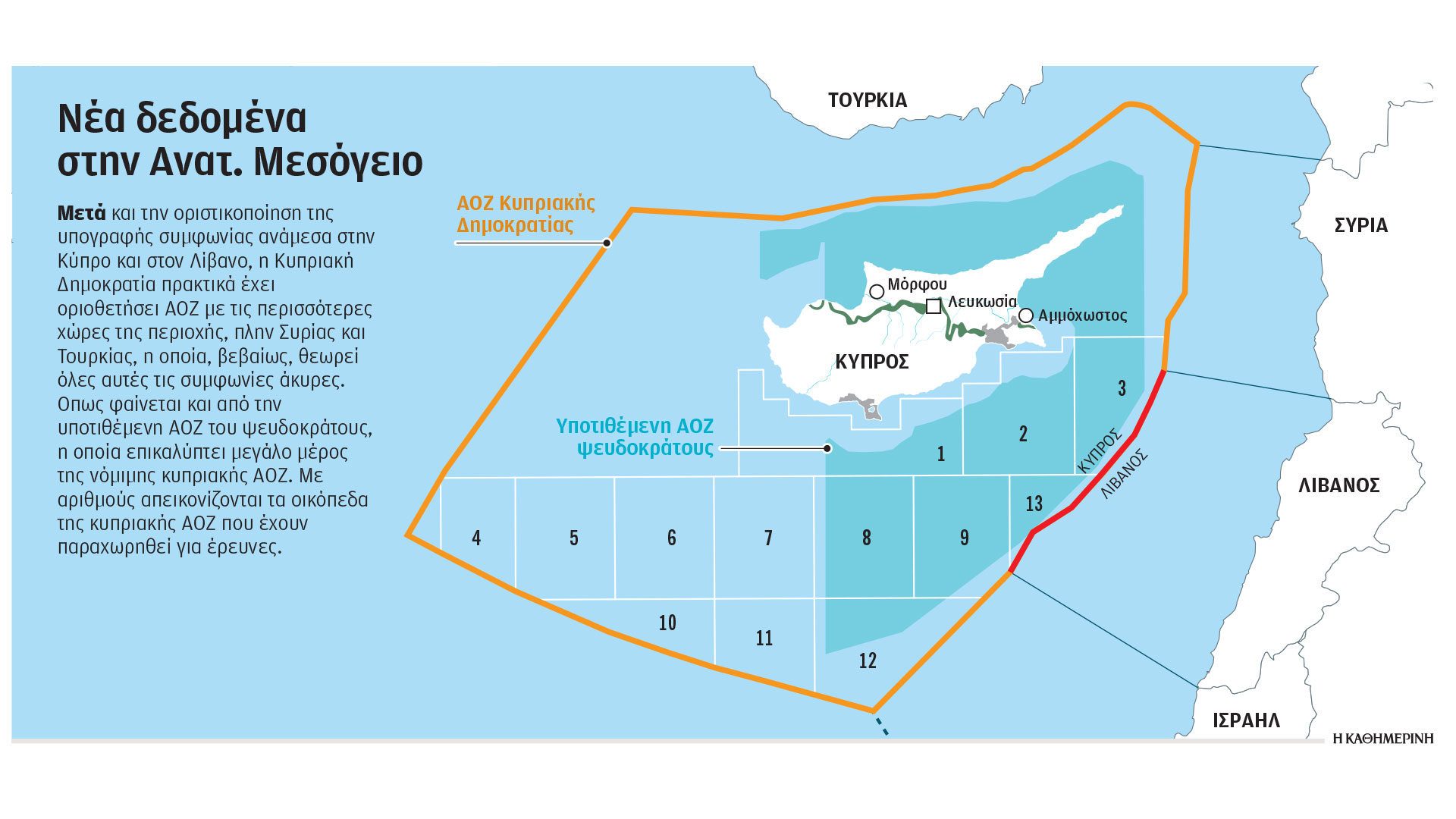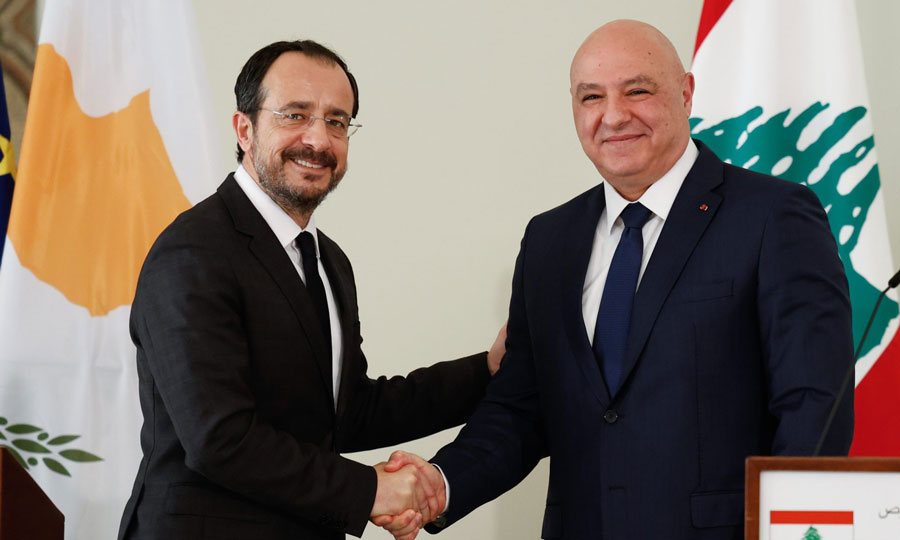
Newsroom
By Thanasis Photiou
In the ornate halls of Baabda Palace, Lebanon’s presidential residence, Cypriot President Nikos Christodoulides and Lebanese President Joseph Aoun on Wednesday signed a long-pending agreement they say “strengthens cooperation, boosts stability, and opens new paths for development” for both countries.
The signing, held Nov. 26, carries heavy symbolic weight in a region where territorial disputes and gunboat diplomacy are the norm. This deal, the two leaders signaled, aims to show that the Eastern Mediterranean still has room for cooperation based on international law, not confrontation.
A 20-year chapter closes
Christodoulides arrived at the palace around 11:30 a.m., where Aoun welcomed him with full military honors before the delegations moved into expanded talks.
The story of this agreement spans nearly two decades. Cyprus and Lebanon first reached a preliminary deal on their Exclusive Economic Zone (EEZ) in 2007. But Lebanon’s parliament never ratified it, stalled by political instability and Beirut’s long maritime dispute with Israel.
Cyprus had long pushed for ratification, especially as Ankara expanded its own claims in the Eastern Mediterranean. But Lebanon, facing internal turmoil and regional tensions, wasn’t in a position to move forward.
A breakthrough finally came in 2022, when Israel and Lebanon settled their maritime dispute through a U.S.-brokered arrangement. That revived hopes the Cyprus–Lebanon file could also be unlocked.
Momentum picked up again after Gen. Joseph Khalil Aoun, now Lebanon’s 14th president, took office in January 2025. Quiet technical talks resumed and, by autumn, the two sides had agreed to an updated version of the old 2007 text. Cabinets in both countries approved it last month.

The billion-euro boost that changed everything
Officials in both Nicosia and Beirut say one factor made a decisive difference: the €1 billion EU support package for Lebanon announced in May 2024 by European Commission President Ursula von der Leyen during a joint visit with Christodoulides.
Cyprus had heavily lobbied Brussels for that aid, arguing it would help Lebanon manage migration flows, a major pressure point for Nicosia. Christodoulides even paid an urgent visit to Beirut a month earlier with a team of Cypriot officials to push for more active Lebanese cooperation.
For Lebanon, battered by years of economic collapse and still suffering from the devastation of the 2020 Beirut port explosion, the European package offered a rare lifeline. According to government sources, it helped “unblock” the EEZ file and bring it back to the table with real prospects for closure.
Trust rebuilt
Beirut viewed Cyprus’ efforts as a sign of genuine neighborly support, not mere self-interest. That goodwill, combined with improved political stability in Lebanon, a renewed sense of direction under its new president, and the economic hope tied to EU backing, created the right climate for finalizing the deal.
With Wednesday’s signatures, the long-stalled agreement finally moves from diplomatic limbo to reality, giving both countries a clearer maritime border, strengthening regional cooperation, and laying groundwork for potential energy and economic partnerships.
*Read the Greek version here.































